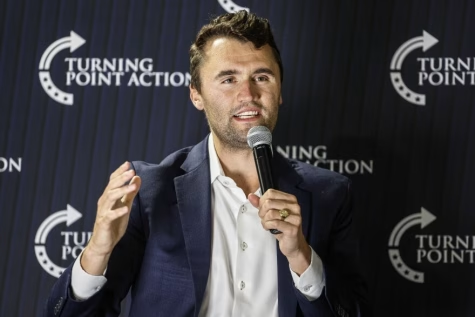When tragedy collides with politics, the voices that emerge in its aftermath often reveal more than a headline ever could. That’s the case with Hunter Kozak, the young man who found himself debating conservative firebrand Charlie Kirk at Utah Valley University in the very moment an assassination attempt rocked the venue. His reflections, captured later in an interview with Channel 5’s Andrew Callaghan, are drawing attention not only for their timing but for their candor.
Kozak describes himself as a man on the left, however, not comfortably within its modern cultural currents. “It does sometimes feel like I am one of the few—definitely not the only, but maybe a minority—of the left that really cares still about life, or family, or America,” he said.
That single line has ricocheted across social media, amplified by outlets like Marauder Magazine, because it cuts against the usual narrative. Here was a progressive who, in the wake of violence, voiced concerns not about right-wing extremism but about the left’s own erosion of fundamental values.
Kozak emphasized that his clash with Kirk was less about winning points and more about the principle of dialogue. “Charlie’s very open about having some sort of conversation… I definitely respect how much he’s willing to platform voices,” he admitted. For a man who made clear his disagreements with Kirk’s politics, this admission carried weight. It was not flattery—it was an acknowledgment that in an age when shouting matches and cancellation often pass for debate, someone willing to stand on stage and trade arguments is a rarity.
“Conversation isn’t everything,” Kozak continued, “but conversation does fuel quite a bit of feels—something that maybe we’ve discarded.” That remark landed as both a critique and a warning: politics divorced from dialogue risks devolving into violence. His observation became tragically relevant as news spread of the assassination of Charlie Kirk.
In another clip, Kozak pushed back on caricatures of the left as inherently hostile, saying he still believed his side to be “peaceful.” Yet his own remarks betray a tension: he feels alienated within the movement he once trusted to defend family, life, and country. It’s a paradox many Americans may quietly share—believing in left-of-center policies while bristling at cultural excesses that seem to hollow out shared values.
The Marauder Magazine post distilled it bluntly: “Hunter Kozak, the guy conversing with Charlie Kirk the moment of the assassination, speaks out against the woke left.” That framing may exaggerate, but it captures the undertone of his comments. Kozak’s respect for Kirk wasn’t ideological; it was about civility. His frustration with the left wasn’t a wholesale rejection; it was a plea for balance.
What makes Kozak’s testimony resonate isn’t just the dramatic setting but the fact that it speaks to a broader national hunger. Americans, left and right alike, are weary of a politics that feels increasingly joyless, brittle, and violent. Kozak’s words—part lament, part tribute, part warning—are a reminder that before policy, before power, and even before ideology, there must be conversation. Lose that, and the alternative is exactly what he witnessed: silence broken only by gunfire.
